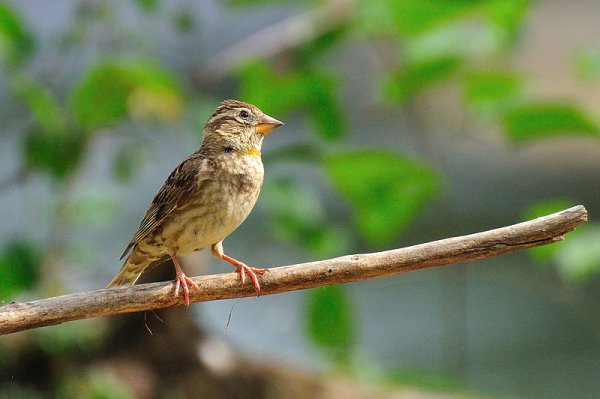A Third Of Birds Have Disappeared In France Due To Pesticides
Tags: News

New research has found that bird populations in the French countryside have declined by a third in just 15 years.
After learning that dozens of species have declined in numbers, Benoit Fontaine, a conservation biologist at France’s National Museum of Natural History and co-author of one of the studies, commented, “The situation is catastrophic. Our countryside is in the process of becoming a veritable desert.” Just some of the species that have fallen by at least a third include the common white throat, the ortolan bunting and the Eurasian skylark, whilst the meadow pipit, a migratory song-bird, has declined by a huge 70%.
The museum explained that the pace and extent of the decline is reaching “a level approaching an ecological catastrophe”. Researchers have concluded that one of the main causes for this steep decline is the intensive use of pesticides on crops, including wheat and corn, which is killing of the insects that the birds eat, thereby depleting their food source. Vincent Bretagnolle, a CNRS ecologist at the Centre for Biological Studies in Chize, said, “There are hardly any insects left, that’s the number one problem.”
Further to this, he also pointed to the recent study across Europe which found that flying insects have declined by 80%, as well as bird populations declining by more than 400m in just 30 years. This has occurred despite government plans to cut the use of pesticides by 50% by 2020, as sales have risen steadily in France. According to European Union figures, sales of pesticides reached more than 75,000 tonnes of active ingredient in 2014.
Bretagnolle stated, “What is really alarming, is that all the birds in an agricultural setting are declining at the same speed, even ’generalist’ birds. That shows that the overall quality of the agricultural eco-system is deteriorating.”
Scientists further claimed that shrinking woodlands, the absence of leaving fields to lie fallow and the expansion of monocrops have also played a role in the wildlife decline. Fontaine added, “If the situation is not yet irreversible, all the actors in the agriculture sector must work together to change their practices.”
I’m Jess Murray, wildlife conservationist, photographer, and writer. Follow my Facebook page and Instagram account to be part of the journey. I like to document the natural world and create awareness through my writing so that your future can be sustainable and positive.
Image Featured/Credit:: Wikimedia Commons
Source: The Guardian
Leave Comment: